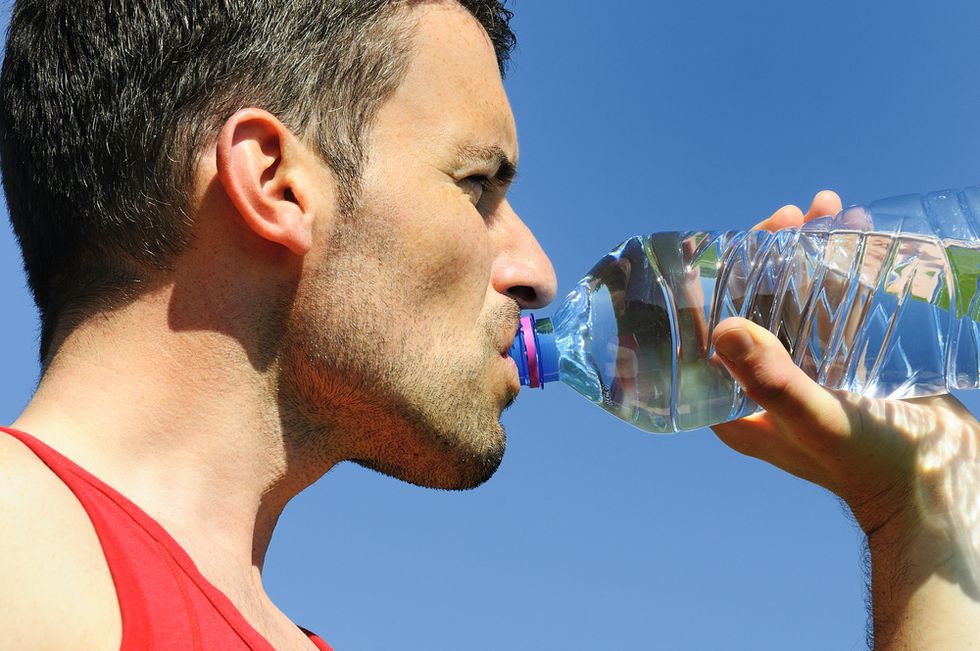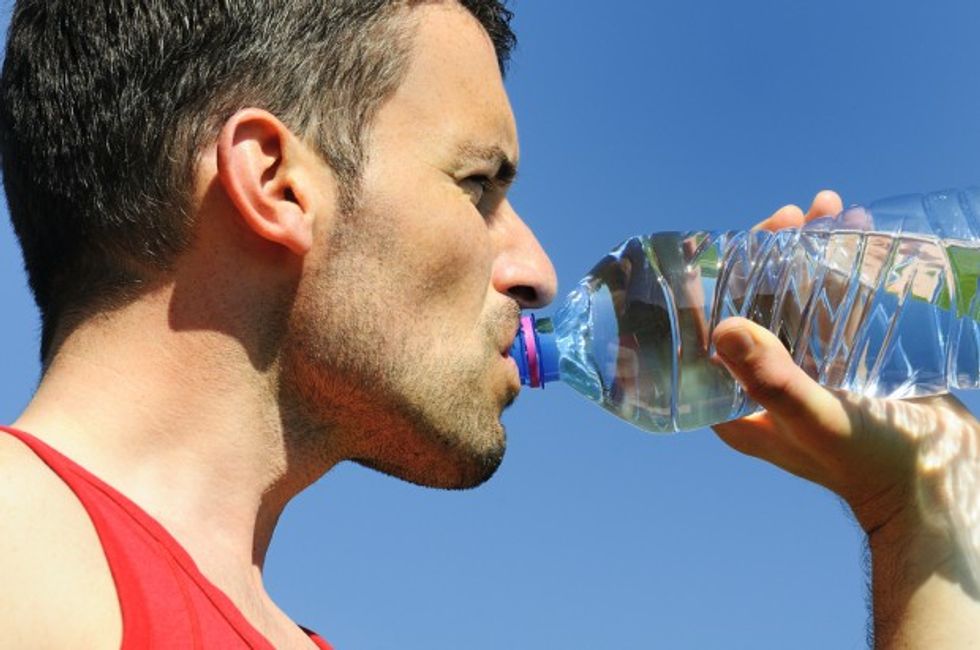
Photo credit: Shutterstock

In warmer months and with exercise, people are frequently reminded to hydrate, hydrate, hydrate.
But a set of new recommendations warns that sometimes it is possible to drink too much fluid with dangerous side effects.
Drinking too much water or sports drinks, Dr. Mitchell Rosner said, can result in a rare condition known as exercise-associated hyponatremia, which is a salt imbalance within the body.

When salt levels are too low, Rosner, a kidney specialist with the University of Virginia School of Medicine, said it can lead to neurological issues and even be fatal.
"We have documented at least 14 deaths [from EAH] since 1981, including two deaths last summer in young athletes playing football," Rosner said in a statement. "The common feature in all cases is excessive water consumption during athletic events. This is driven by common misbeliefs that overhydration can improve performance and even prevent dehydration. It is worth noting that data demonstrates mild degrees of dehydration do not impair performance."
In the new guidelines published in the Clinical Journal of Sports Medicine, the panel of experts noted that just last summer two high school football players died from hyponatremic encephalopathy, which resulted from overhydration. Even sports drinks with salt are still mostly water, the exerts stated.
As a general rule of thumb, Rosner recommended athletes drink when thirsty.
"If you drink when thirsty, you will not become hyponatremic and you will not suffer from significant dehydration," he said.
This might counter some recent popular rhetoric that suggests if you experience thirst, you're already dehydrated.
But the study authors wrote "the bulk of evidence supports that mild levels of dehydration (up to 2 [percent] -3 [percent] of body weight) are well tolerated and minimally affect athletic performance."
"Thus, drinking according to thirst should be protective of significant levels of dehydration while at the same time preventing overly excessive fluid intake and the development of EAH," the experts continued.
If you need some number guidance for about how much fluid you should be drinking, the Mayo Clinic states that people exercising to the level of sweating should drink about 1.5 to 2.5 extra cups of water. Intense exercise lasting several hours would require more, and Mayo Clinic suggests drinking fluids with sodium added in this case as well.
—
Front page image via Shutterstock.